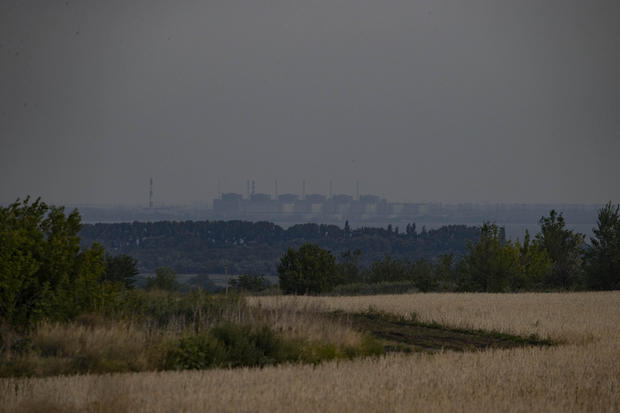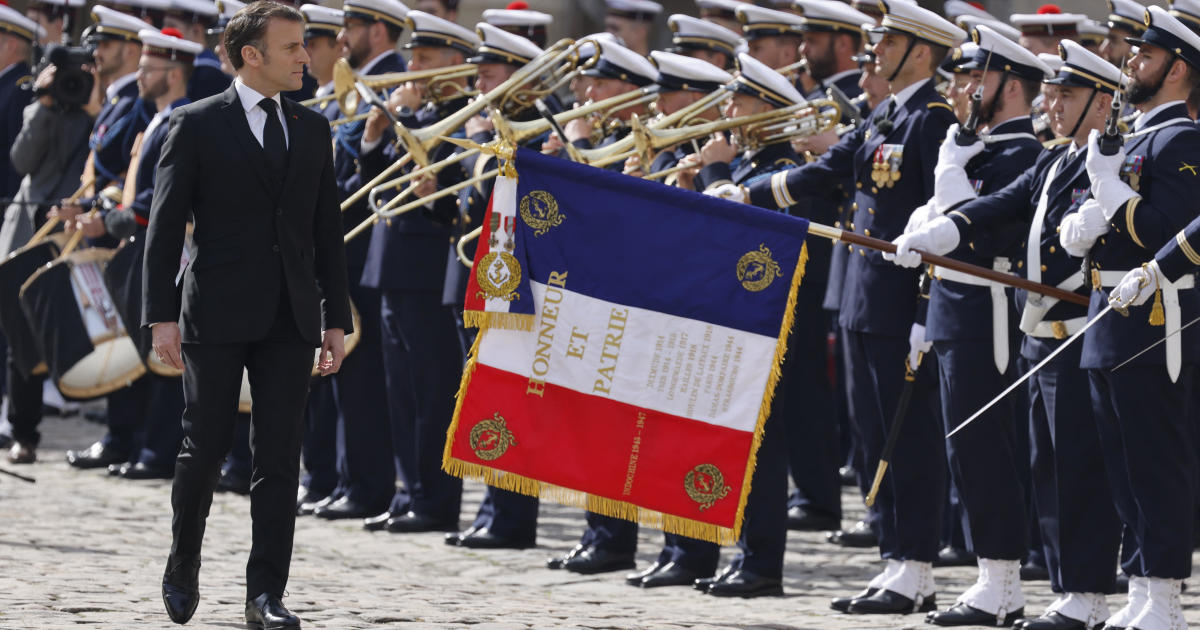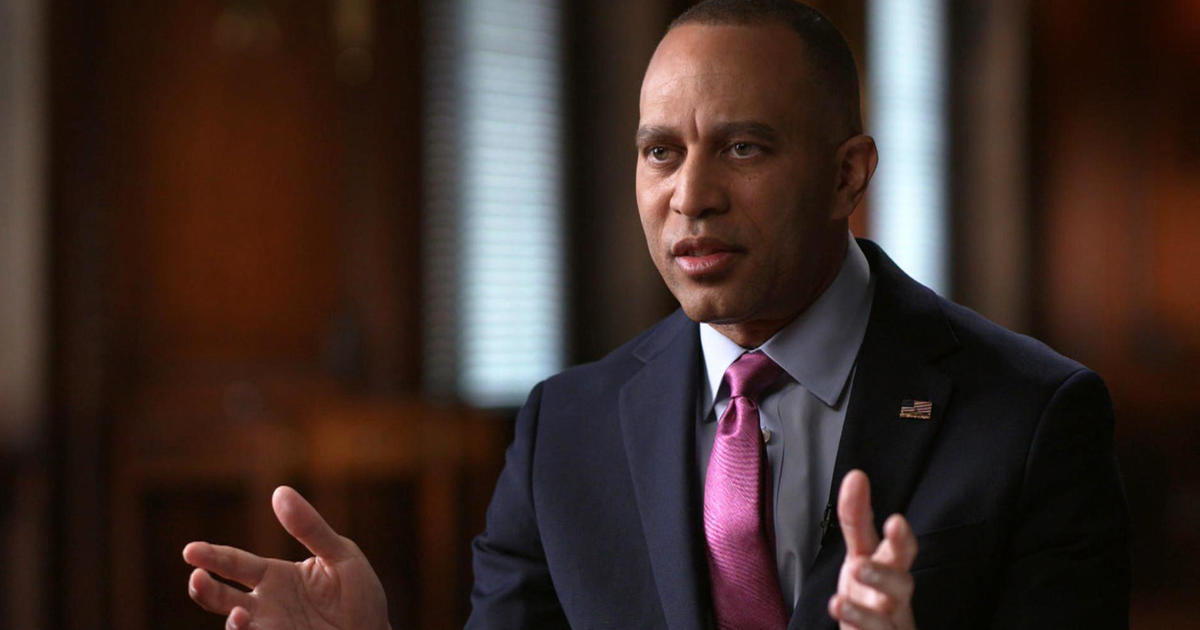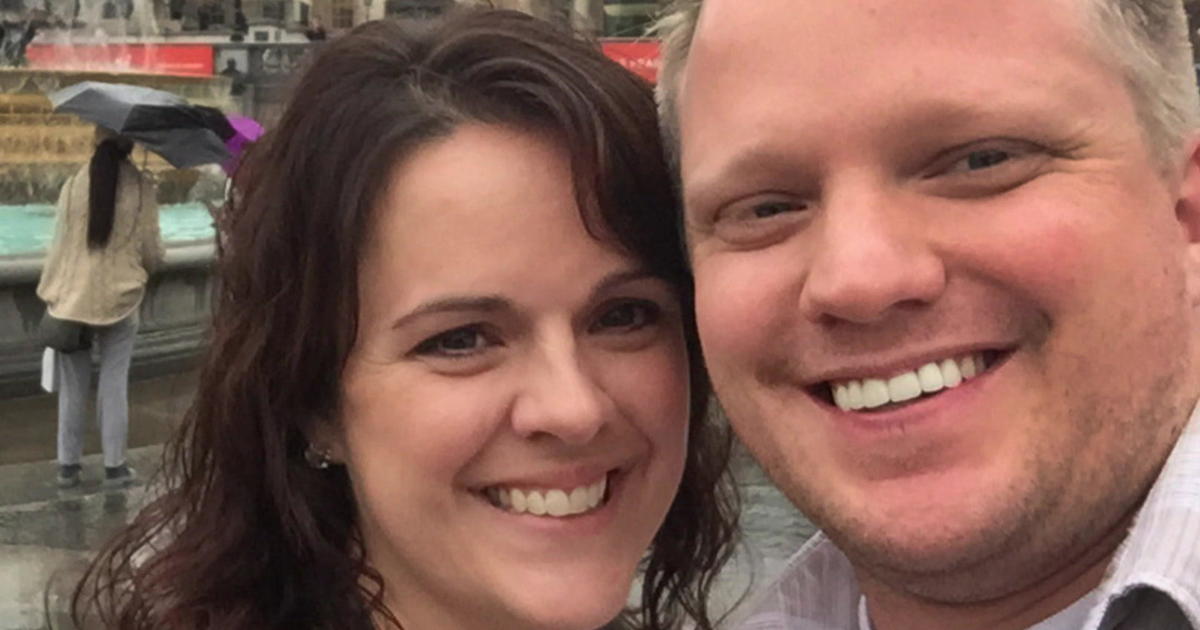Zelenskyy says Russia's actions at nuclear plant put world on the "brink of radiation catastrophe" in surprise U.N. address
Ukrainian President Volodymyr Zelenskyy delivered a surprise remote address on Wednesday during a U.N. Security Council meeting, accusing Russia of putting the world on the "brink of radiation catastrophe" by taking military action near Europe's largest nuclear plant.
The meeting, which commemorated Ukraine Independence Day and marked six months of war, also included an impassioned plea by the Secretary General to avoid an accident at the Zaporizhzhia nuclear plant.
The comments come as concerns grow worldwide about the status of the plant and the risk of a devastating accident. Ukraine and Russia have repeatedly accused each other of shelling the plant, and fighting in the area has increased significantly since Russia captured it earlier this year.
"Russia should stop nuclear blackmail," Zelenskyy told U.N. diplomats on Wednesday.
U.S. Secretary of State Antony Blinken told the Security Council earlier this month that Russia "is using this plant as the equivalent of a human shield, but a nuclear shield in the sense that it's firing on Ukrainians from around the plant and of course, the Ukrainians cannot and will not fire back lest there be a terrible accident involving a nuclear plant."
The International Atomic Energy Agency (IAEA), a global nuclear watchdog, has been trying for months to broker an agreement to send investigators to the plant. Both Russia and Ukraine have said they would be open to such a visit. The IAEA has also asked to make the area a demilitarized zone to reduce the risk of future catastrophe.
Zelenskyy said Wednesday that he believes the IAEA should take "permanent control of the situation" at the plant and that Russia should "completely withdraw" from the area.
Referring to Russia's attempt to annex several regions of Ukraine, including the area around the nuclear plant, as "sham referendums," U.S. Ambassador to the U.N. Linda Thomas-Greenfield told diplomats: "Let's be clear: The international community will never recognize Russia's attempt to change Ukraine's borders by force."
Zelenskyy also condemned Russia's overall war effort and called on the Kremlin to stop the fighting, telling diplomats that he received information about an attack against a railroad station that had caused civilian casualties while preparing his address to the Council.
"We condemn in the strongest terms sustained missile strikes by the Russian Armed Forces on the territory of Ukraine, which have repeatedly hit residential areas and civilian infrastructure, resulting in harm to, displacement and death of thousands of civilians during the full-scale invasion of Ukraine," he said.
Russia's U.N. Ambassador, Vassily Nebenzia, objected to Zelenskyy delivering the address to the Council by videoconference — but he was outvoted in a procedural vote in which only China abstained.
U.N. Secretary General Antonio Guterres also condemned Russia for committing "grave violations of international human rights law and international humanitarian law," and reiterated his concerns that the food crisis sparked by the war "could drive millions more into extreme poverty." The meeting comes as the U.N.-brokered Black Sea grain deal is ramping up wheat exports to alleviate the crisis and lower prices.
But while Zelenskyy said the grain export deal has helped stem the food crisis, he noted that the only way to ensure a stable food supply is to end the war.
"[The deal] relieves a part of the tension in the food market but does not remove the threat completely," he said, adding, "only the full recovery of Ukrainian agricultural exports, without any obstacles, can be a guarantee that tens of millions of people around the world would have something to eat."
The second Council meeting on Ukraine in two days comes as the U.S. and E.U. are announcing increases in the deliveries of sophisticated weapons to Ukraine. On Wednesday, President Biden announced that the U.S. would provide nearly $3 billion more in aid.





